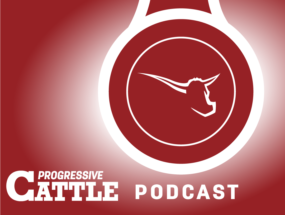Most family farm and ranch owners hope that their operation will continue into the next generation. However, accomplishing this goal doesn’t just happen on its own. A well-drafted estate plan is essential, especially for agricultural operations.
Think about how much time and money you spend on risk management in your operation. You pay big bucks to manage your risk when it comes to price and yield variability, weather, animal health, quality assurance and natural hazards, just to name a few. So why wouldn’t you manage your risk when it comes to planning the transition to the next generation? Unlike the risks identified above, planning for the future of your farm or ranch doesn’t have to be filled with unknowns. In fact, with the right help, the process can be quite simple.
Even if death doesn’t seem imminent, it’s important to start planning early. In this industry, you likely know someone who has passed away unexpectedly in a farming or ranching accident. Unfortunately, we see this happen all too often, and the failure to have an estate plan in place could ultimately be the downfall of the generations of hard work that it took to build your operation to where it is today.
Consider the following scenario: Andy, Billy and Charlie’s parents didn’t have an estate plan, so the children inherit the family ranch in equal shares. Years ago, Andy decided to move to the city to pursue a white-collar career with an unlimited supply of air conditioning. Andy has no interest in ranching and hasn’t worked on the ranch for several years. Meanwhile, Billy and Charlie have worked on the ranch their entire lives and now have families of their own. Andy, seeing the value of the land and having no interest in agriculture, decides he wants to sell the property and get his share in cash. Billy and Charlie, owning a majority interest, refuse. However, the law provides Andy with the right to file a lawsuit for partition and force the sale of the ranch. Billy and Charlie didn’t have enough cash available to buy out Andy’s share, so the ranch that has been in the family for five generations is sold to a development company. Billy and Charlie, now in their late 30s, have no choice but to find a new way of life and a different method of supporting their families.
You may be thinking: “All my kids are actively involved in our operation; I don’t need this estate-planning nonsense!”
Consider the following scenario: Andy, Billy and Charlie inherit the family ranch in equal shares. Their parents didn’t have an estate plan, so the siblings own equal one-third shares in the ranch and its assets. Each of the siblings is actively involved in the operation and work together well. Andy dies unexpectedly, and his wife, Darcy, gets his one-third share. Darcy has no interest in agriculture or the family operation. In fact, Darcy sees this as the perfect opportunity to sell her one-third interest and buy that vacation home she’s always wanted. Thus, Darcy files a lawsuit for partition and forces the ranch to be sold.
The bad news: Scenarios like these are very common. Agricultural estate planning attorneys see situations like this all the time. Poor estate planning can lead to lawsuits that derail your operation and leave your children – who dedicated their lives to the family ranch – with no choice but to start over.
The good news: These scenarios can be avoided. Taking the time to meet with an experienced agricultural estate planning attorney is critical to ensure that your operation survives in the next generation.
Remember, every estate plan is unique; it should be specifically tailored to the needs of your family and your operation. In drafting your plan, reconsider the meaning of “equal.” Start thinking about how to divide your agricultural and nonagricultural assets (e.g., life insurance, savings accounts, nonagricultural real estate and retirement plans) to equitably distribute your property between agricultural and nonagricultural heirs. Some estate planning tools your attorney will likely discuss with you include wills, trusts, business entity formation and transfers by gift. It is important to consider which estate planning methods are right for your family.
Agriculture is not just a business; it’s a way of life. Well-crafted plans to transition farm and ranch estates to the next generation are essential to keeping this way of life alive for future generations. The failure to have a well-drafted estate plan puts your children and your operation at risk. So, what will you leave behind: a legacy or a lawsuit?
This article is provided for informational purposes only and is not intended to constitute legal advice. Readers should consult their own professional advisers for specific advice tailored to their needs. Information contained in this article may be subject to change without notice.









